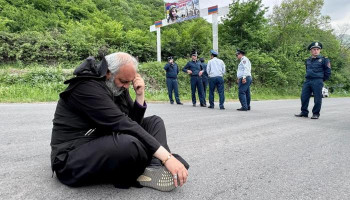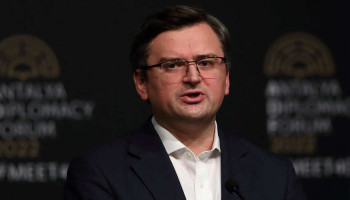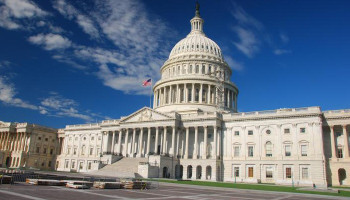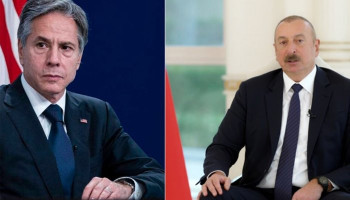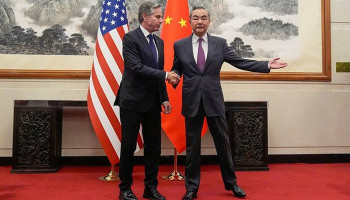Senate panel puts Russia sanctions bill on hold
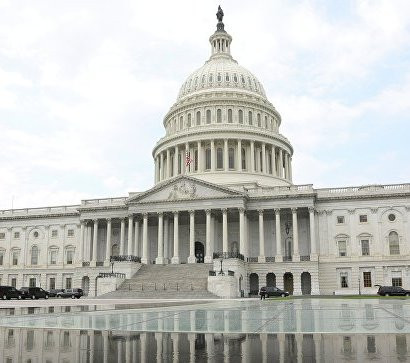 Bipartisan legislation to impose sanctions on Russia over alleged meddling in Ukraine, Syria and the 2016 U.S. elections is indefinitely on hold, according to the Senate’s top voice on foreign policy, likely until the Senate Intelligence Committee completes its investigation into the Kremlin’s activities. Senate Foreign Relations Committee Chairman Bob Corker (R-Tenn.) said Monday that the Senate would wait “to get some facts” before moving ahead with the bill, which codifies existing sanctions against Russia imposed by executive order since 2014 and introduces new punitive measures against anyone supporting Russian cyber-hacking against public or private infrastructure. The measure has support from high-ranking Democrats and Republican hawks, but struggled to get support from Corker, who earlier had insisted on renegotiating the bill before allowing it to proceed to the floor. “I mean you do have a detailed hearing process and an investigation that’s underway,” Corker said Monday. “Does it not make sense to get those facts, let them be known, and deal with it accordingly? I think it does.” It is not clear when the Senate Intelligence Committee will complete its probe into allegations of Russian meddling in the 2016 election and potential collusion with political campaigns. The committee has recently come under some fire from Democrats for not moving more quickly. The committee’s ranking Democrat, Benjamin L. Cardin (D-Md.), had hoped that the Russia sanctions bill would advance to a vote alongside compromise legislation to impose stricter sanctions against Iran over a spate of recent ballistic missile tests and the activities of the country’s Islamic Revolutionary Guard Corps, a group that the Trump administration is considering labeling a terrorist organization. That Iran sanctions bill — compromise legislation that Corker and Cardin unveiled in March after more than eight months of wrangling — could be voted on by the full Senate later this month, Corker said. Lawmakers have held back on scheduling a vote on the Iran sanctions bill until the Iranian presidential elections, scheduled for May 19, over concerns that the measure could empower hard-liners in the country. The race is widely seen as a national referendum on the multilateral Iran nuclear deal that was implemented last year, and Iranian leaders have since warned — over U.S. objections — that past proposals to stiffen ballistic missile sanctions on Tehran would jeopardize the pact.The Senate does not go on an extended break again until the week of Memorial Day, and Corker said Monday that the Iran sanctions bill “could move at the end of this work period.” Though Russia sanctions are on hold, Corker noted that he still plans to work with Cardin on advancing portions of his legislative proposals to counter Russian propaganda in the United States and abroad in advance of the Senate Intelligence Committee completing its work.A spokesman for Cardin said the propaganda piece would be “an initial step to hold Russia accountable for its destabilizing activities,” but that he continues to stand by the full roster of sanctions he laid out in his bill. Cardin introduced a Russia sanctions bill in January with Sen. John McCain (R-Ariz.) and a bipartisan group of about 20 co-sponsors. Another Russia bill from Sen. Lindsey O. Graham (R-S.C.), which seeks to give Congress review power over any effort to roll back sanctions against Russia, has attracted a similar number of bipartisan co-sponsors since it was filed in February. Corker argued that both of those bills, however, were filed at a time when the prospect of maintaining sanctions against Russia was far less certain than it is today. “Let’s face it, the drive for Russia sanctions was that many people on the left and right were concerned that the administration may try to undo the sanctions on Ukraine and Crimea, and — I’ll just use this word — on a cheap deal relative to Syria,” Corker said Monday. “I don’t think anybody has that fear anymore. And so the desire to act quickly has dissipated. There’s no reason to do that because no one feels that’s really going to happen anymore.” |











